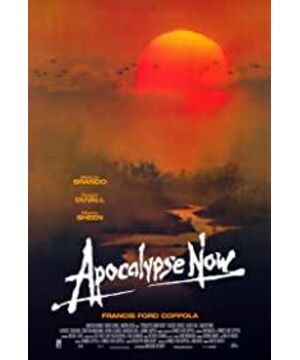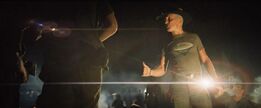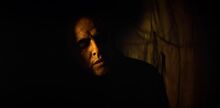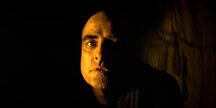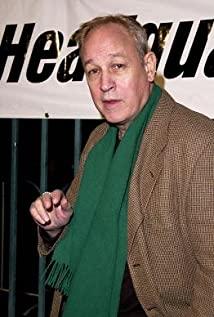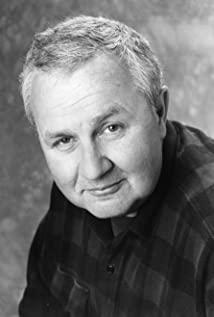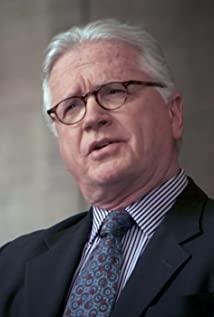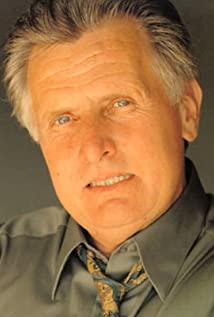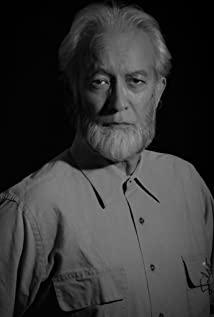This article was first published on DeepFocus on August 10, 2020. There is also the original title "Anti-History-Coexistence with Death"
At the Cannes Film Festival in 1979, Coppola faced a full house of media and cameras, describing to them the unfinished version of "Apocalypse Now": "My film is not a "box office blockbuster." not a movie), it is not a story about Vietnam (war), but Vietnam itself. The way we make it is exactly like what Americans did in Vietnam: we are in the jungle; we have too many people , Too much equipment, so point by point, we lost our minds."
Four years ago, Coppola bet on the fame and ambition he earned in the two "Godfathers", personally funded, took the "Apocalypse Now" script from George Lucas, and went to Southeast Asia with his family in the jungle. Spend the most fanatical and gloomy time of his life. 40 years later, in the era when 4K picture quality has become the standard, the film has undergone a public release version and a rebirth version at the beginning of the new century, and its final editing has been ushered around the world. When the audience in Shanghai welcomes this brand-new movie, we will think of his aggressive confession again, as if returning from a risky trip from Styx. This prophet is indifferent to everyone in a civilized society, looking forward to the end of the movie. The audience who lived as usual afterwards delivered a message from the god of death in a hidden corner of the earth.
Decades after the Empire shouted "Apocalypse Now!", for us who have just been relieved from the global panic of the virus siege, apart from being a celebration of returning to the theater, is this movie Carrying another meaning? The shadow of the Vietnam War has long been far away from us. However, when sitting in peace, silent or buzzed by information, the fragments of war often lay in front of our eyes, but disappeared without a trace within a few days. . But does Coppola's uneasiness simply stem from the anti-war? As he said, every time "Apocalypse Now" appears on the screen, its meaning goes beyond the "movie", not only because it shows us the dust that nature turns into when it collapses in the face of war. , Or the ruthless roar of machinery as it crushes the naked eye. It is not only a gorgeous ball to show off the emptiness of war, but also from this ball, one by one stripped of jewelry, clothing, feats, sensuality and empty talk, as far as the center of the uncivilized continent, Until the depths of ignorance, the reverse historical Odyssey.
Officer Willard took the task of assassinating a madman upstream (river-history), "walking into" the depths of the jungle, just as the protagonist in the movie "Heart of Darkness" said, "It's not going to the mainland "The center of the earth, but the center of the earth", its invisible text is exactly the backtracking of human beings in the history of the earth (as opposed to the human center of "history"). The officer, together with the civilization he represents-like the uncle of Apichatpong It’s rice-like—while talking about the end, while "walking back" to the jungle, until at the other end of the earth’s history, I saw another face of myself.
"We enjoyed our dinner elegantly, and the bloody slaughterhouse was carefully hidden." "Apocalypse Now" is just like the illustration of Emerson's motto. In the movie, Americans made up their minds not to cover the false dinner etiquette of Western powers and the unrestrained evil behind it with a gorgeous shroud. On the way to the reverse Odyssey, the wailing in the slaughterhouse is not only the creatures, but also the value system, humanity, language, and even the illusion of the passing of history, as well as an imagination of the gods. Or, which some in the film is actually a series of dead has always been a synonym for words on the rope, which escaped between their universal support from the surface of life, but only in Coppola's journey, these The fragile bonds are rapidly collapsing as they approach each other. The two poles of civilization (extremely mechanical and extremely primitive) meet in the vortex of time, and idols are repeatedly wandering between nothingness and reconstruction.
So, what exactly is "Apocalypse Now"? If it is a direct record of war, we cannot see the heroes, the masses, or even the struggle in it, only the chaos of communication on the fringe of fanaticism and nothingness. Coppola first followed a way of writing history, in which history gave up grasping its own words, gave up describing heroes and epics, and gave the right to engrave memories directly to artillery. This means that at the beginning of the film, the authority of the political machine was declared to be disintegrated. An ideological encyclopedia of war was exposed before us, deprived of the self-protection of power, so we were able to see the truth under the sugar coating of history. I was able to challenge the revolutionary vocabulary of "struggle, victory and survivor": "No, you see, there is no hero, we are all pigs!"
Under such a premise, how should we talk about it? Coppola repeatedly revised the script of John Milius during the filming process, and even added the opening paragraph of the film at the Saigon Hotel based on the vision he saw in his dream, and finally joined the crew in Marlon Brando. At the time, I wrote new dialogues for him every day for three weeks, because even Coppola couldn’t decide where the movie would go. The seeds of chaos spread from the moving image to the back of the camera, as if time has completed the reenactment of history through the lens. We must ask ourselves why chaos is the omnipresent background?
There is no doubt that the enthusiasm of the Vietnam War under the camera is the enthusiasm of the United States. We can hardly imagine that the officers of any other country would make the decision to dispatch more than a dozen helicopters to air raids just to surf the sea in front of the village. But at the same time, we should realize that the United States has become a metaphor for modern human civilization here. A giant baby filled with junk food and steam waste, wandering across the horizon with iron armor, needs to smell the leaves burning for many years. The smell of burnt burns to maintain his self-esteem, the codes and scales seem to be no longer applicable to him, and his eyes no longer accommodate the gaze of another creature.
The media are full of lies, domestic anti-war public opinion, foreign continual defeats, four-term presidential fierce battle, primitive and unknown enemies like animals and the invisible oppression of the Soviet Union. The mud of the Vietnam War is the pride of the Americans. The title that needs to be solved urgently in the age, but it seems to be an ingenious excuse to open the window into all the mazes in history to the movie. "Should love your neighbor"-as a discipline, it established the Western civilization of Christian pastoralism, and as a cultural banner, it has set off a bloody storm in the Gentile land since the Middle Ages.
Lieutenant Kilgore, who is thinking about surfing, will eventually be the victim of this war. Even if he was dazzled by hormones, he would not lose his life at gunpoint. In the illusion of victory or discipline, he also distorted the criteria and qualifications of being a human being; if vanity and desire for destruction are two proportional vectors If so, he was like a worm that happened to climb to the highest place of mankind. He could see clearly that the countless projects of the empire under his feet, like ant dens, were actually just mirages—because the laws that restricted them were no longer valid in the highest places of power— The only legal display here is destruction. He has mastered this law too naturally, but he has forgotten that he who knows the truth is also closely followed by destruction.
In the roar of the Valkyrie and the helicopter, his profile reflects the red light of will, and the fireworks of the doomsday, like a surreal rally conspired by Wagner and Goebbels. He personally plays the executioner of ethics, but enters another lie in the swelling vanity, and will die of this lie in the foreseeable future, in the way of Kutz, the way of the black captain, or in "Full Metal Shell" Fat Bill's way.
This lie is an illusion of power. If we remember Harry, the eavesdropper in " The Conversation " (The Conversation, 1974 ) , we would remember how this man turned a deaf ear to the secrets that kept flooding in his ears, and how carefully he Preventing these secrets from corroding him. And when he only chose to believe in the gift that power gave him, he realized that he had never had any power in his hands, and because of this credulity, he instantly lost all his freedom. The irony in "The Great Conspiracy of Eavesdropping" provides the kinetic energy for the chaos of the "Apocalypse": once the power is put into use, the mechanism of deception (conspiracy of talking to men and women) and deception (the fabricated nature of conversation) begins to operate, it not only has to destroy To kill its enemies, but also to swallow anyone who works for it. At the end of the movie, Harry blew the saxophone while sitting in the rotten apartment, surrounded by the ruins left by the sweep of power. This ruin immediately follows the beginning of "Apocalypse Now". Coppola magnified this Harry volute-like pure land countless times. So we are in the jungle. Propellers and fans are like wings raised by power. A justified terrorist attack.
Now we can understand why the opening scene of the movie is The End sung by The Doors. In the eye of the storm of a scam (the newspaper news that Kurtz read to Willard at the end, this time the scene was deleted in the final cut), the language was the first to fail. Recognizable but counter-intuitive agreement), then human faces (death poker, crowds of bunny girls), at the same time the illusion of the empire (the sunset in the French colony), and finally the passage of time (the chaotic repetition, Upstream stagnation time). Power is a contradiction, while it continues to create discourse and order, and on the other hand, it recognizes the emptiness of order with its own absurdity and violence. If history (written by power) is a station through Willard in the river, that time Staying on the river bank without the permission of history (power) is a mistake of civilization inadvertently stepping into the non-historical -the chef was scared to cry by the tiger jumping out of the jungle, because he has never been so far away from history. There has never been an image in history that shows life and death at the same time so vividly, and opens a gap between life and death.
At this moment, we suddenly realized the truth of the war. It is the derailment of history toward non-historicality, the nihility whose power cannot restrain itself, and the attack toward nihility: nihility spews out to us from the breach of this collision, and we Face the anonymous arrow shot in the jungle with flesh and blood. The non-historical truth is a buzzing ocean, meaningless life. It has no language, so there is no distinction between subject and object, and there is no separation of words and imagination, but it pervades every corner of the consciousness and material world. History is terrified of it, so it has cultivated the fields that humans rely on for survival in this vast ocean: scams and forgetting. The former creates a huge net in the form of self-talk, and the latter washes away all the sand on the Internet at any time. The short and erroneous memory of mankind takes the form of a revised history. (Newspaper read by Kutz to Willard)
In "Apocalypse Now", war is a metaphor that is diametrically opposed to the modern civilization represented by the United States. It is a metaphor for everything that crashes into order, or the disorder that is unintentionally bred in the progress of order, by writing the movie as war itself. , Coppola puts us directly in the non-history. In this buried soil, life and death are divided into half of the territory. The fog and jungle that the warship sails through is the symbol of Jung’s in the "Red Book" The ultimate meaning explained is the unity of imagery and power, which combines alternate meaning and meaninglessness.
But there is only meaning in history, only the illusion of life created by the complex chain of cause and effect. It either heroizes death, or regards death as a moral or biological necessity, through heroization to immortal life, and rationality through necessity Putting above nothingness once again implies the eternal existence of order. Meaning is the goal of historical struggle, but for non-historical purposes, it is only a stage or a subtype. The emptiness is the essence that history puts on countless heavy masks to conceal it, but for non-history, emptiness is the form of its existence, because everything is happening and dissolving in it forever, but it has never been shaped or filled. We shouldn’t say “death is the end of life” and rashly define death in terms of life. Instead, we should say “death is the background of life”, just like saying that the river is the background of the ship, in order to expand the definition of life.
So we can answer why in Coppola's film, every aspect of the war: air strikes, waves, coconut groves, pontoons, lights, flesh and blood, civilians, all just drift by like the strange faces in Fellini films, they It does not appear tragic, and even spectacular in the illusion: because this is the road, the way and the bridge to the non-historical, the process of the transformation of reason (Willard) into obscenity (Kutz), the beginning is the death of civilization, and the end is In a tired silence, we walk through the landscapes, which appear symmetrical and pious on the frescoes of death. "Apocalypse Now" is such a search. It does not look towards a certain lost treasure or imaginary legend from the outside, but is more like the moon looking for its dark side. Willard’s long journey is actually just a difficult turn of the humans who have decided to turn their backs to the abyss since ancient times. This movement is so small, but it requires him to re-emerge with the passion and fear that Jacob wrestled with God. .
But this task is like moving a mountain to the individual, but as light as a feather to the group. Individuals need to break through the heavy crust of civilization, but if civilization wants to leap into the deep well of self-destruction, it only needs to remove a leaf of history from its eyes (as Coppola did), or it will always be transformed by history as a protective cover for humanity. Become the enemy of mankind, the latter staged repeatedly in the large-scale genocide of the 20th century. Human horror and moral terror, the two friends of Colonel Kurtz, or the two masters, that is, the non-historical itself (the jungle), and the non-historical (sin) that has not been successfully suppressed in history. Development (embodiment). It exists both outside and in human nature. Civilization is like a tall building rising from the ground in a wasteland. It celebrates its miracles, erects its own benchmarks and idols. As it moves its spire further and further away from the ground, it seems to gradually forget that it is still taking root. And always belong to this wasteland. Believing that order will be eternal like a sculpture, it suffers from pride disease, and believes that its own rise means the disappearance of this wasteland. I have never found that barrenness is continuously growing from the inside of the building. Excessive ideals will become the most poisonous blade. The example we can immediately think of is the history of communism: the wasteland opens its blood bowl and mouths, waiting for the day when a dangerous building that is still climbing is overturned. This is why the Bible tells us that "the time is near (the end of the day)". What the Bible warns of is not an end point determined by God, but an end determined by man's posture and has nothing to do with the passage of time.
Power has created a cage of civilization and a whirlpool of time. But within this wall, what is wrong is not the existence of history, but history tries to cover the sky with one hand and convince a race that it is the full picture of the world. From this moment on, we have lost and An opportunity for non-historical harmony. The Viet Cong in the words of Colonel Kutz is better at living in fear and barbarity than American soldiers. They understand ethics and at the same time are as close to death. They are good at loving, and also good at destroying and killing. In the world, complete love also means willingly preparing to destroy. Therefore, when we take love and peace for granted, it also indicates that we will be more likely to lose them, because we are bound to be unable to resist the sudden terror. We can only bow down and surrender in front of its image, just like Captain Kutz was caught by it. Bite into the hollow body.
Our time is like the two sides of a coin, one is cynicism, and the other is a scam of order. In the confusion of one positive and the other, both prevent the re-birth of faith. Willard must kill Kurtz, because humans must go beyond their own desire for death to continue living, but humans cannot forget death, so Kurtz was taken away from his life in a carnival ritual like a totem animal. From a moment on, he was truly regarded as a memorial to the gods. In Kutz’s body, in Coppola’s god-making movement, we see the most primitive form of faith at the beginning of its birth: it is not about eternal life as it implies, but represents humanity and death, and nothingness. The first step in orderly reconciliation.
On the contrary, it shreds the world of faith, and is more like an eternal city where death is forgotten. Only here is the God who listens to the prayers of the believers and gives rain and wind. Coincidentally, in the global blockade at the beginning of the epidemic and the reappearing haze of the international situation, we seem to have discovered that we have completely lost the possibility of living in the same room with fear.
View more about Apocalypse Now reviews


